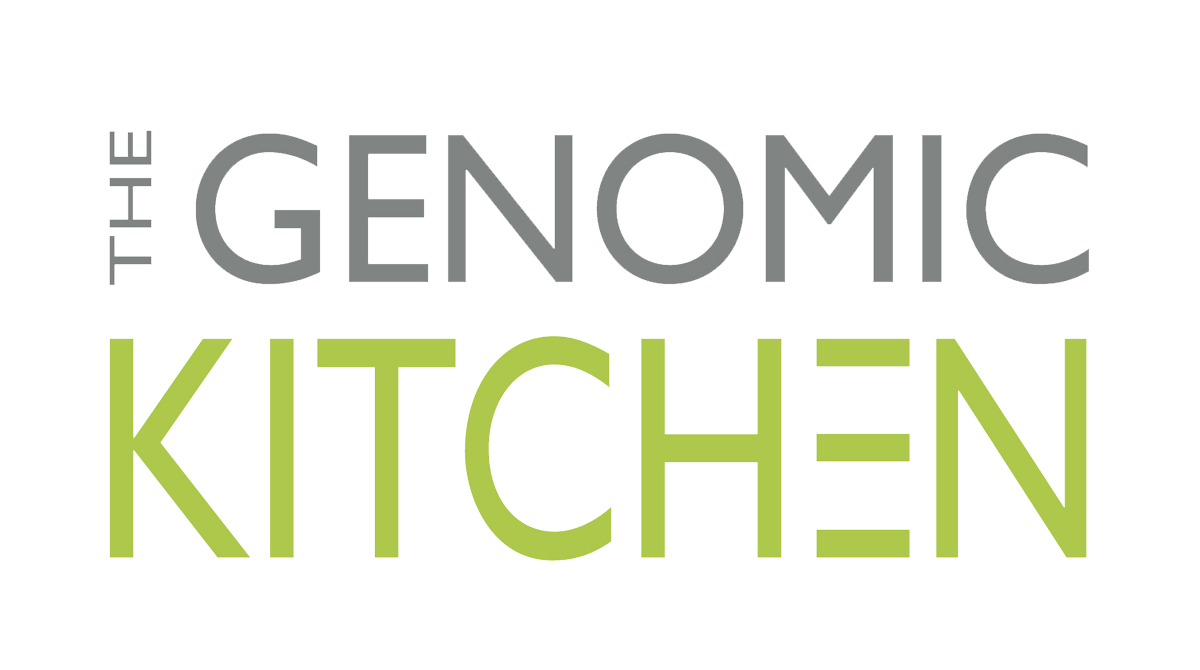Genes, Food, and Your Health
Genes produce proteins, providing the underlying mechanisms for all processes involved in human disease or health. Variations in genes can lead to altered function of the proteins they produce and result in a higher risk for cellular, biochemical and metabolic dysregulation. While exercise, stress and environmental factors can influence gene expression, nothing is more influential on gene behavior than food.
The Genomic Kitchen unites genetic science with the culinary arts in an empowering new system for choosing, preparing and cooking ingredients for optimal long-term health based on a language recognized by your DNA. Here are some essential terms and concepts to get you started on the culinary genomic path.
Culinary Genomics
Culinary Genomics is the revolutionary union of genomics and nutrition science (nutritional genomics) with the culinary arts. It is the art of choosing, preparing and cooking ingredients in a language recognized by your DNA with the goal of reducing the primary causes of chronic disease and accelerated aging. The principles of culinary genomics, a term coined and first used by Amanda Archibald, founder of The Genomic Kitchen, can be used broadly by everyone or individualized to a person’s unique gene “blueprint.”
Genomics
Genomics looks at the sum of all of your genes (your entire gene package) and how they interact with each other as well as with environmental factors such as food, stress and environmental contaminants.
Nutrigenomics
Nutrigenomics is genomics seen through the lens of nutrition and helps us understand how specific nutrients and other non-nutritional compounds found in food influence gene behavior. Also known as nutritional genomics.
Bioactives
Bioactives are non-nutrient dietary components that influence gene behavior, acting like a switch or signal to the cell to set in motion a series of biochemical activities. Examples of bioactives are quercetin, polyphenols (such as lycopene) and resveratrol. The hands and experience of the chef are instrumental in the gentle handling of bioactives as many can be both heat- and acid-sensitive.
Single Nucleotide Polymorphism (SNP)
SNP, or Single Nucleotide Polymorphism, is an “error” in how a gene encodes for a protein. While a SNP on one protein may have little or no impact, a SNP in a series of different proteins related to a biochemical pathway in the body may have a profound effect on how the body functions and its long-term health.
Gene Expression
Gene Expression When activated, genes initiate the process by which a copy of the genetic information they contain - RNA - is made and transforms it into a protein.
Co-factors
Co-factors are vitamins and minerals that assist the proteins produced by your genes, helping do the work of building and supporting the body’s innate biological processes.



